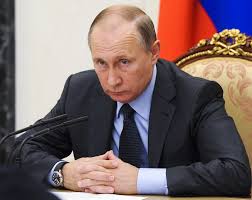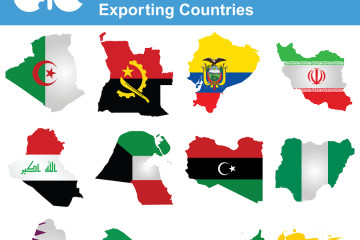OPEC and Russia Ready to Extend Oil-Supply Cuts Until End-2018

published Nov 29, 2017 4:39:17 PM, by Grant Smith, Salma El Wardany and Nayla Razzouk
(Bloomberg) —
OPEC and Russia are ready to extend their oil production cuts until the end of next year to ensure global stockpiles keep falling and prices maintain recent gains.
All OPEC members and Russia, the biggest producer outside the group to join the deal, agree the cuts should last until the end of 2018, according to delegates in Vienna to attend Thursday’s meeting. On Wednesday, a committee charged with overseeing the agreement on behalf of the whole group also recommended extending until the end of next year, two delegates said.
“The extension will be nine months,” said Iraqi Oil Minister Jabbar al-Luaibi.
A year after OPEC and its allies banded together in a dramatic bid to wrest back control of the oil market from U.S. shale producers, there’s a consensus that the job’s not finished. Nonetheless, the details of Thursday’s final agreement will matter to traders ready to scour the communique to gauge the strength of the group’s continued commitment.
Even though an extension through the whole of 2018 is all but certain, the cartel plans to hold a regular ministerial meeting next June, giving it the flexibility to alter the policy mid-game. For some oil investors, that potential review is a cause for concern. For others, it’s just the natural course of the cycle of twice-yearly OPEC meetings
Prior to Wednesday’s talks, banks including Citigroup Inc. and Goldman Sachs Group Inc. had warned investors to prepare for disappointment due to Russia’s hesitance to prolong the cuts. There was no indication that Moscow had received the assurances it was said to be seeking on how and when the agreement could be phased out, yet Russian Energy Minister Alexander Novak offered a positive impression of the discussions.
“We had a very good constructive talk,” Novak told reporters after Wednesday’s committee meeting. “The market is still not rebalanced, needs further joint actions after April 1. Everybody recommended to extend the agreement.”
Russian Concerns
Novak’s comments echoed the view of his Saudi Arabian counterpart Khalid Al-Falih, who praised the “solid results” achieved by the cuts before the committee meeting.
“It has now been nearly a year since we reached the production agreement and the results have been indeed very gratifying,” he said. “In order to continue reaching our shared goals a good deal more hard work and commitment is essential.”
One possible outcome for Thursday’s meeting is that the existing deal, currently scheduled to expire in March, is “reset” to run for twelve months from the start of January, one delegate said. That could allow the group to tweak the terms of the agreement.
For Russia, reassurance about how the cuts would eventually be wound down seemed to be as important as the duration of the extension, according to people involved in the closed-door negotiations. Its need for clarity is greater than most OPEC members because its economic policy making is more complex, including a floating exchange rate that fluctuates with the oil price.
Moscow also wants a schedule of how the cuts will end so it can guide privately-owned Russian oil companies and their foreign partners about future output, the people said, asking not to be named because the talks are private.
Igor Sechin, chief executive officer of state-run Rosneft PJSC, and Lukoil PJSC’s billionaire boss Vagit Alekperov have questioned the wisdom of prolonging the deal when oil prices are already above $60 a barrel.
The issue of how to eventually ramp production back up was raised in Vienna on Wednesday, Novak said, without elaborating. All details will be announced on Thursday, he said.
–With assistance from Laura Hurst, Golnar Motevalli and Angelina Rascouet.To contact the reporters on this story: Grant Smith in London at gsmith52@bloomberg.net ;Salma El Wardany in Cairo at selwardany@bloomberg.net ;Nayla Razzouk in Dubai at nrazzouk2@bloomberg.net To contact the editors responsible for this story: James Herron at jherron9@bloomberg.net Will Kennedy, Will Wade
copyright
© 2017 Bloomberg L.P






No Comment